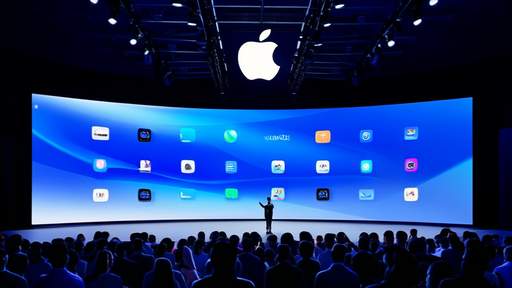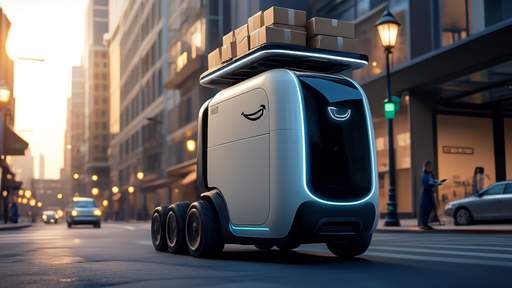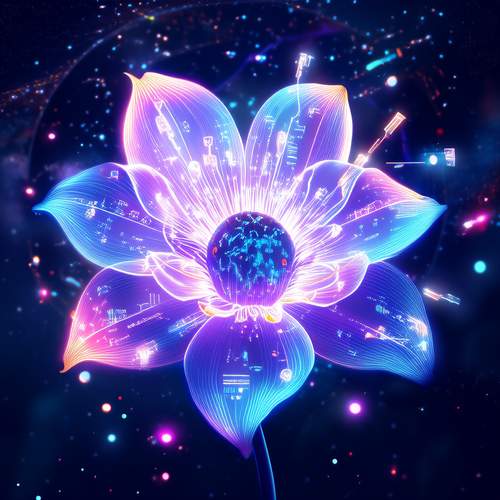In the rapidly evolving landscape of technology, artificial intelligence (AI) has emerged as a transformative force, reshaping industries and redefining the way we interact with technology. At the forefront of this revolution is Microsoft, a company that has long been a cornerstone of the tech industry. Under the leadership of CEO Satya Nadella, Microsoft has been aggressively integrating AI into its core products and services, with a particular focus on its Copilot AI assistant. This strategic move is not only changing the way Microsoft operates internally but also setting the stage for a future where AI is seamlessly integrated into our daily lives.
Satya Nadella's Personal Use of AI
A recent Bloomberg profile of Nadella revealed a fascinating insight into his personal use of AI. Nadella, who has been a vocal advocate for the potential of AI, shared that he no longer listens to podcasts in the traditional sense. Instead, he uploads the transcripts of podcasts to Copilot, Microsoft's AI assistant, and discusses the content with it during his drive to the office. This approach allows him to engage with the material in a more interactive and personalized way, leveraging the capabilities of AI to enhance his understanding and retention of information.
Nadella's reliance on AI extends beyond his personal consumption of media. He jokingly described his role as an "email typist," highlighting the mundane aspects of his job that AI can now handle more efficiently. Nadella relies on at least 10 custom agents developed in Copilot Studio to summarize emails, prepare for meetings, and perform other office tasks. This shift underscores the growing role of AI in streamlining workflows and enhancing productivity, even at the highest levels of corporate leadership.
Microsoft's AI Strategy
Nadella's personal use of AI is just the tip of the iceberg when it comes to Microsoft's broader AI strategy. The company has been investing heavily in AI, particularly in its partnership with OpenAI, the developer of the popular ChatGPT language model. This collaboration has led to significant advancements in Microsoft's AI capabilities, with Copilot emerging as a central component of its AI-driven offerings.
Copilot is designed to assist users in various tasks, from writing and editing documents to analyzing data and generating creative content. By integrating Copilot into its suite of products, including Office 365 and Windows, Microsoft aims to provide users with a more intuitive and efficient experience. This move is part of a larger trend in the tech industry, where companies are leveraging AI to enhance user productivity and satisfaction.
The Impact on Microsoft's Workforce
The integration of AI into Microsoft's operations has had tangible effects on its workforce. One of the most notable impacts has been on the company's programming teams. Reports indicate that programmers were among the hardest hit in Microsoft's recent layoffs, shortly after Nadella declared that 30% of the company's code was now being written by AI. This shift reflects the growing role of AI in automating tasks that were traditionally performed by human programmers, leading to a reevaluation of the skills and roles needed within the company.
The layoffs are not just a reflection of technological advancements but also a strategic move to reallocate resources towards areas where AI can have the most significant impact. Microsoft is investing heavily in training and upskilling its workforce to adapt to these changes, ensuring that employees are equipped to work alongside AI rather than being replaced by it.
The Broader Implications for the Tech Industry
Microsoft's embrace of AI is part of a broader trend in the tech industry, where companies are increasingly integrating AI into their products and services. This shift is driven by the potential of AI to enhance productivity, improve user experiences, and drive innovation. However, it also raises important questions about the future of work and the skills needed in an AI-driven economy.
As AI becomes more prevalent, companies will need to navigate the delicate balance between leveraging its capabilities and ensuring that human employees remain relevant and valued. This will require a focus on continuous learning and upskilling, as well as a reevaluation of traditional job roles and responsibilities.
The Future of AI at Microsoft
Looking ahead, Microsoft's AI strategy is likely to continue evolving. The company is committed to making AI accessible and beneficial to all users, from individual consumers to large enterprises. By integrating AI into its core products and services, Microsoft aims to create a seamless and intuitive user experience that enhances productivity and creativity.
Nadella's personal use of AI serves as a powerful example of the potential of AI to transform our daily lives. As AI becomes more integrated into our workflows and personal routines, we can expect to see continued advancements in the capabilities and applications of AI assistants like Copilot.
Embracing the AI Revolution
The integration of AI into Microsoft's operations is a testament to the transformative potential of this technology. From enhancing personal productivity to streamlining corporate workflows, AI is reshaping the way we interact with technology and each other. As companies like Microsoft continue to invest in AI, we can expect to see significant advancements in the capabilities and applications of AI-driven tools.
The future of work in an AI-driven economy will require a focus on continuous learning and adaptation. Companies must prioritize the upskilling of their workforce to ensure that employees can thrive in an environment where AI plays an increasingly central role. By embracing the AI revolution, companies like Microsoft are not only transforming their own operations but also setting the stage for a future where AI is an integral part of our daily lives.
As we navigate this new landscape, it is essential to approach AI with both optimism and caution. The potential benefits are immense, but so are the challenges. By fostering a culture of innovation and ethical responsibility, we can ensure that AI serves as a force for good, enhancing human potential and driving progress in ways we can only begin to imagine.

By Christopher Harris/Jun 6, 2025

By Emily Johnson/Jun 6, 2025

By Laura Wilson/Jun 6, 2025

By Jessica Lee/Jun 6, 2025

By William Miller/Jun 6, 2025

By Victoria Gonzalez/Jun 6, 2025

By /May 21, 2025

By /May 21, 2025

By /May 21, 2025

By /May 21, 2025

By /May 21, 2025

By John Smith/May 19, 2025

By Sophia Lewis/May 19, 2025

By Christopher Harris/May 19, 2025

By Natalie Campbell/May 19, 2025

By Grace Cox/May 19, 2025

By Amanda Phillips/May 19, 2025

By Megan Clark/May 19, 2025

By Eric Ward/May 19, 2025

By Ryan Martin/May 19, 2025